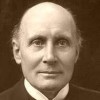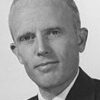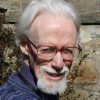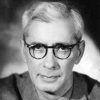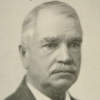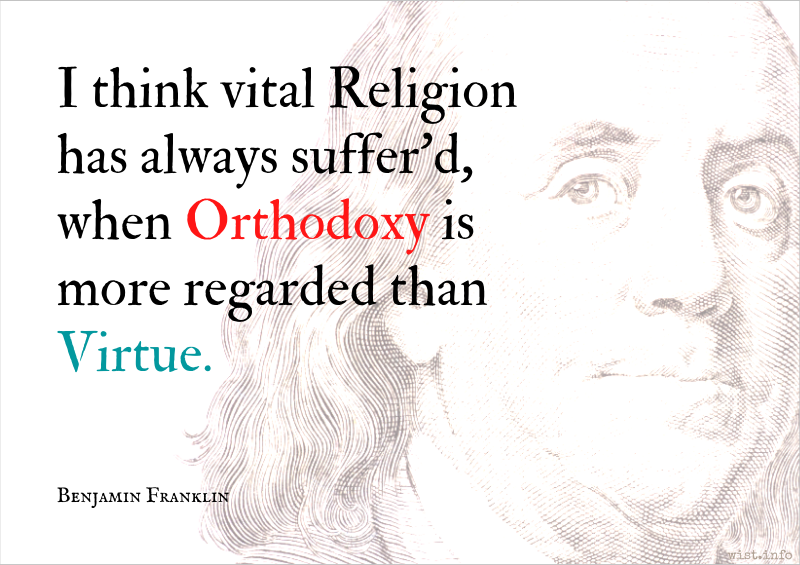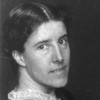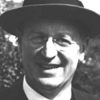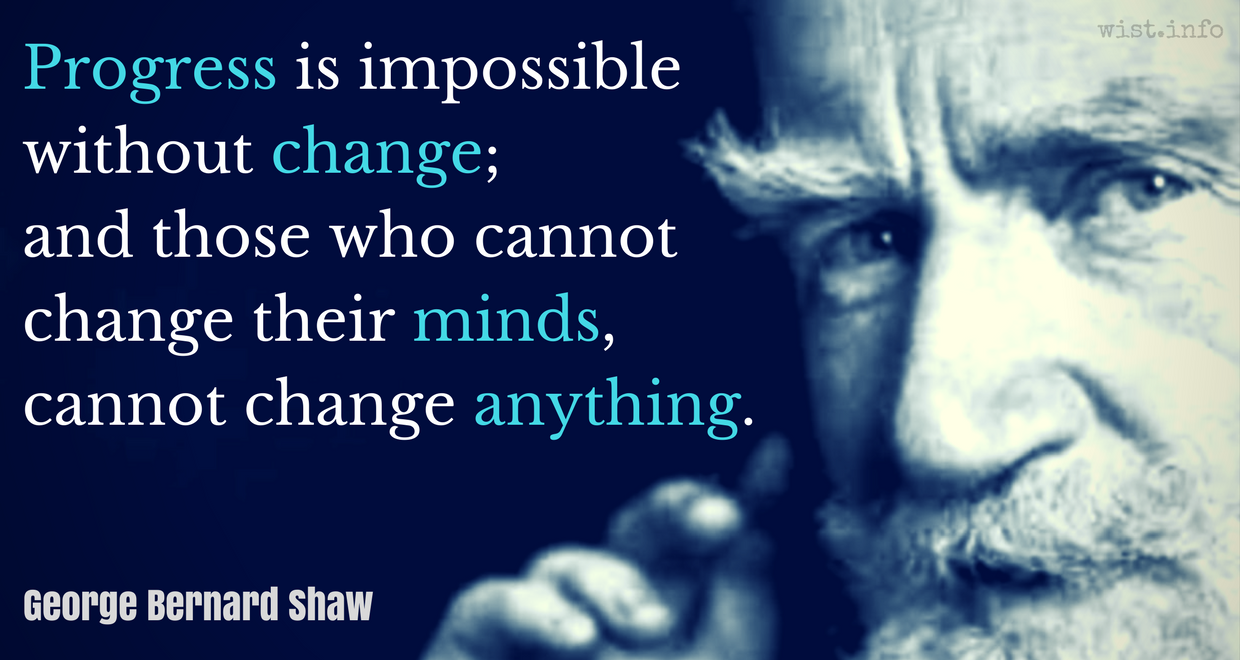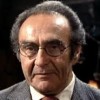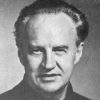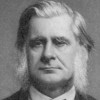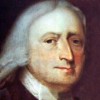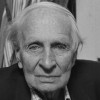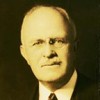How shallow, puny, and imperfect are efforts to sound the depths in the nature of things. In philosophical discussion, the merest hint of dogmatic certainty as to finality of statement is an exhibition of folly.
Alfred North Whitehead (1861-1947) English mathematician and philosopher
Process and Reality: An Essay in Cosmology, Preface (1929)
(Source)
The book is a collection of his Gifford Lectures, University of Edinburgh (1927-1928).
Quotations about:
dogma
Note not all quotations have been tagged, so Search may find additional quotes on this topic.
However that may be, it is always disastrous when governments set to work to uphold opinions for their utility rather than for their truth. As soon as this is done it becomes necessary to have a censorship to suppress adverse arguments, and it is thought wise to discourage thinking among the young for fear of encouraging “dangerous thoughts.” When such mal-practices are employed against religion as they are in Soviet Russia, the theologians can see that they are bad, but they are still bad when employed in defence of what the theologians think good. Freedom of thought and the habit of giving weight to evidence are matters of far greater moral import than the belief in this or that theological dogma. On all these grounds it cannot be maintained that theological beliefs should be upheld for their usefulness without regard to their truth.
Bertrand Russell (1872-1970) English mathematician and philosopher
“Is There a God?” (1952)
(Source)
Essay commissioned by Illustrated magazine in 1952, but never published there. First publication in Russell, Last Philosophical Testament, 1943-68 (1997) [ed. Slater/Köllner].
On the necessary points, unity. On the questionable points, liberty. In everything, love.
Augustine of Hippo (354-430) Christian church father, philosopher, saint [b. Aurelius Augustinus]
(Misattributed)
A commentary on theological / doctrinal dispute, frequently attributed to Augustine, but not found in his works.
The first known occurrence of such an expression is in Marco Antonio de Dominis, De Republica Ecclesiastica, Book 4, ch. 8, penultimate sentence (1617):
Omnesque mutuam amplecteremur unitatem in necessariis, in non necessariis libertatem, in omnibus caritatem.
[And let us all embrace one another, unity in what is necessary, liberty in what is not necessary, charity in all things.]
The phrase was also adapted by Richard Baxter (1615-1691) as his motto. See also Rupertus Meldenius (1626).
More discussion about this quotation here: Liber locorum communium: In necessariis unitas, in non necessariis libertas, in utrisque caritas (Marco Antonio De Dominis, 1617), cf. In necessariis unitas, in dubiis libertas, in omnibus caritas (and other variants). English: "In essentials unity ..."
Among the lessons taught by the French Revolution, there is none sadder or more striking than this — that you may make everything else out of the passions of men except a political system that will work, and that there is nothing so pitilessly and unconsciously cruel as sincerity formulated into dogma.
James Russell Lowell (1819-1891) American diplomat, essayist, poet
“Abraham Lincoln” (1864), My Study Windows (1871)
(Source)
Historians may be dogmatists, I know, though not so often now as when history was dogma. At least you will perhaps agree that even a smattering of history and especially of letters will go far to dull the edges of uncompromising conviction. No doubt one may quote history to support any cause, as the devil quotes scripture; but modern history is not a very satisfactory side-arm in political polemics; it grows less and less so.
Learned Hand (1872-1961) American jurist
“Sources of Tolerance,” speech, University of Pennsylvania Law School (1930-06)
(Source)
Collected in The Spirit of Liberty (1953).
The surest safeguard against treason is a polity so just and equitable that no one will wish to betray it. Such an inspiration of men’s affection and men’s confidence is a more dependable guarantee of national security than the most searching catechism or the most diligent secret police. As we depart from this principle we confess our weakness, to our enemies as well as to ourselves. As we are faithful to it we realize our strength and show it to the world.
Whitney Griswold (1906–1963) American historian, educator [Alfred Whitney Griswold]
“Freedom, Security, and the University Tradition,” speech, Columbia University Bicentennial (1954-06-02)
(Source)
Reprinted in Griswold, In the University Tradition (1957).
It is impossible to exaggerate the evil work theology has done in the world. What destruction of the beautiful monuments of past ages, what waste of life, what disturbance of domestic and social happiness, what perverted feelings, what blighted hearts, have always marked its baneful progress.
Lydia Maria Child (1802-1880) American abolitionist, activist, journalist, suffragist
The Progress of Religious Ideas Through Successive Ages, Vol. 3, “Concluding Chapter” (1855)
(Source)
Child is specifically referring to religious thinking and doctrine removed from sentiments of reverence, justice, and benevolence.
Religion does not consist in doctrines of any kind, but in sentiments of reverence toward God, and of justice and benevolence toward our fellow men.
Lydia Maria Child (1802-1880) American abolitionist, activist, journalist, suffragist
The Progress of Religious Ideas Through Successive Ages, Vol. 3, “Concluding Chapter” (1855)
(Source)
Trouble arises when either science or religion claims universal jurisdiction, when either religious dogma or scientific dogma claims to be infallible. Religious creationists and scientific materialists are equally dogmatic and insensitive. By their arrogance they bring both science and religion into disrepute. The media exaggerate their numbers and importance. The media rarely mention the fact that the great majority of religious people belong to moderate denominations that treat science with respect, or the fact that the great majority of scientists treat religion with respect so long as religion does not claim jurisdiction over scientific questions.
Freeman Dyson (1923-2020) English-American theoretical physicist, mathematician, futurist
“Progress in Religion,” Templeton Prize acceptance speech, Washington National Cathedral (9 May 2000)
(Source)
It is the uncompromisingness with which dogma is held and not in the dogma or want of dogma that the danger lies.
Samuel Butler (1835-1902) English novelist, satirist, scholar
The Way of All Flesh, ch. 68 (1903)
(Source)
Truth gains more even by the errors of one who, with due study and preparation, thinks for himself, than by the true opinions of those who only hold them because they do not suffer themselves to think.
John Stuart Mill (1806-1873) English philosopher and economist
On Liberty, ch. 2 “Of the Liberty of Thought and Discussion” (1859)
(Source)
Bigotry and science can have no communication with each other, for science begins where bigotry and absolute certainty end. The scientist believes in proof without certainty, the bigot in certainty without proof. Let us never forget that tyranny most often springs from a fanatical faith in the absoluteness of one’s beliefs.
Ashley Montagu (1905-1999) British-American anthropologist and humanist [b. Israel Ehrenberg, a/k/a Montague Francis Ashley-Montagu]
Science and Creationism, Introduction (1984)
The second sentence is frequently (mis)quoted:
- "Science has proof without any certainty. Creationists have certainty without any proof."
- "Religion gives us certainty without proof; science gives us proof without certainty."
A dogma is the hand of the dead on the throat of the living.
Lemuel K. Washburn (1846-1927) American freethinker, writer
Is the Bible Worth Reading and Other Essays (1911)
(Source)
I had been religiously educated as a Presbyterian; and tho’ some of the Dogmas of that Persuasion, such as the Eternal Decrees of God, Election, Reprobation, &c. appear’d to me unintelligible, others doubtful, & I early absented myself from the Public Assemblies of the Sect, Sunday being my Studying-Day, I never was without some religious Principles; I never doubted, for instance, the Existence of the Deity, that he made the World, & govern’d it by his Providence; that the most acceptable Service of God was the doing Good to Man; that our Souls are immortal; and that all Crime will be punished & Virtue rewarded either here or hereafter; these I esteem’d the Essentials of every Religion, and being to be found in all the Religions we had in our Country I respected them all, tho’ with different degrees of Respect as I found them more or less mix’d with other Articles which without any Tendency to inspire, promote or confirm Morality, serv’d principally to divide us & make us unfriendly to one another.
Benjamin Franklin (1706-1790) American statesman, scientist, philosopher, aphorist
Autobiography, Part 2 (1785)
(Source)
I think vital Religion has always suffer’d, when Orthodoxy is more regarded than Virtue. And the Scripture assures me, that at the last Day, we shall not be examin’d what we thought, but what we did; and our Recommendation will not be that we said Lord, Lord, but that we did GOOD to our Fellow Creatures.
Benjamin Franklin (1706-1790) American statesman, scientist, philosopher, aphorist
Letter to Josiah and Abiah Franklin (13 Apr 1738)
(Source)
His parents. Franklin cites Matt. 26 in the letter, but it should be Matt. 25:31-46.
You both seem concern’d lest I have imbib’d some erroneous Opinions. Doubtless I have my Share, and when the natural Weakness and Imperfection of Human Understanding is considered, with the unavoidable Influences of Education, Custom, Books and Company, upon our Ways of thinking, I imagine a Man must have a good deal of Vanity who believes, and a good deal of Boldness who affirms, that all the Doctrines he holds, are true; and all he rejects, are false. And perhaps the same may be justly said of every Sect, Church and Society of men when they assume to themselves that Infallibility which they deny to the Popes and Councils. I think Opinions should be judg’d of by their Influences and Effects; and if a Man holds none that tend to make him less Virtuous or more vicious, it may be concluded he holds none that are dangerous; which I hope is the Case with me.
Benjamin Franklin (1706-1790) American statesman, scientist, philosopher, aphorist
Letter to Josiah and Abiah Franklin (13 Apr 1738)
(Source)
His parents.
No matter what the belief, if it had modestly said, “This is our best thought, go on, think farther!” then we could have smoothly outgrown our early errors and long since have developed a religion such as would have kept pace with an advancing world. But we were made to believe and not allowed to think. We were told to obey, rather than to experiment and investigate.
When the heavy-handed dogmatist requires a categorical assent to the literal truth of the miraculous, in exactly the same sense in which physical facts are true, a tension between faith and reason cannot be avoided.
William Ralph Inge (1860-1954) English prelate [Dean Inge]
“Bishop Gore and the Church of England” (1908), Outspoken Essays: First Series (1911)
(Source)
One of the greatest of joys known to man is to take such a flight into ignorance in search of knowledge. The great pleasure of ignorance is, after all, the pleasure of asking questions. The man who has lost this pleasure or exchanged it for the pleasure of dogma, which is the pleasure of answering, is already beginning to stiffen.
Robert Lynd (1892-1970) American sociologist [Robert Slaughton Lynd]
The Pleasure of Ignorance, ch. 1 (1921)
(Source)
It is a truism that almost any sect, cult, or religion will legislate its creed into law if it acquires the political power to do so, and will follow it by suppressing opposition, subverting all education to seize early the minds of the young, and by killing, locking up, or driving underground all heretics. This is equally true whether the faith is Communism or Holy-Rollerism; indeed it is the bounden duty of the faithful to do so. The custodians of the True Faith cannot logically admit tolerance of heresy to be a virtue.
Robert A. Heinlein (1907-1988) American writer
“Concerning Stories Never Written” (Oct 1952)
(Source)
Progress is impossible without change; and those who cannot change their minds, cannot change anything.
George Bernard Shaw (1856-1950) British playwright and critic
Everybody’s Political What’s What? (1950 ed.)
(Source)
Revolutions, as a long and bitter experience reveals, are apt to take their colour from the régime which they overthrow. Is it any wonder that the creed which affirms the absolute rights of property should sometimes be met with a counter-affirmation of the absolute rights of labour, less anti-social, indeed, and inhuman, but almost as dogmatic, almost as intolerant and thoughtless as itself.
R. H. Tawney (1880-1962) English writer, economist, historian, social critic [Richard Henry Tawney]
The Acquisitive Century, ch. 3 “The Acquisitive Society” (1920)
(Source)
It’s said that science will dehumanize people and turn them into numbers. That’s false, tragically false. Look for yourself. This is the concentration camp and crematorium at Auschwitz. This is where people were turned into numbers. Into this pond were flushed the ashes of some four million people. And that was not done by gas. It was done by arrogance, it was done by dogma, it was done by ignorance. When people believe that they have absolute knowledge, with no test in reality, this is how they behave. This is what men do when they aspire to the knowledge of gods.
God offers to every mind its choice between truth and repose. Take which you please — you can never have both.
Ralph Waldo Emerson (1803-1882) American essayist, lecturer, poet
“Intellect,” Essays: First Series (1841)
(Source)
Now any dogma, based primarily on faith and emotionalism, is a dangerous weapon to use on others, since it is almost impossible to guarantee that the weapon will never be turned on the user.
More important than any belief a man holds is the way he holds it. Any fool or fanatic can embrace a doctrine. Even if true, it remains a dogma unless it is evaluated in the light of its alternatives, and the relevant evidence for them.
For at least two thirds of our miseries spring from human stupidity, human malice, and those great motivators and justifiers of malice and stupidity, idealism, dogmatism, and proselytizing zeal on behalf of religious or political idols.
Aldous Huxley (1894-1963) English novelist, essayist and critic
“Knowledge and Understanding,” Vedanta and the West (May-Jun 1956)
(Source)
Revision of a 1955 lecture given at the Vedanta Society of Southern California; this phrase, however, does not occur in it (the surrounding text is found around the 10:00 mark). Reprinted in Adonis and the Alphabet, and Other Essays (in the US Tomorrow and Tomorrow and Tomorrow, and Other Essays) (1956).
Sir, I think all Christians, whether Papists or Protestants, agree in the essential articles, and that their differences are trivial, and rather political than religious.
A dogmatical spirit inclines a man to be censorious of his neighbors. Every one of his opinions appears to him written, as it were, with sunbeams, and he grows angry that his neighbors do not see it in the same light. He is tempted to disdain his correspondents as men of low and dark understandings because they do not believe what he does.
There should be no articles of faith in science, unless it be the faith that no discovery, no law, is so absolute that it cannot be superseded.
Anthony Storr (1920-2001) English psychiatrist and author
Feet of Clay: Saints, Sinners and Madmen, ch. 10 (1996)
(Source)
The present state of civilized nations and their past history bear witness on the same side. So far as any nation recognises, or has recognised, the great truth, that every dictum, every belief, must be tested and tried to the uttermost, and swept ruthlessly away if it be not in accordance with right reason, so far is that nation prosperous and healthy; and so far as a nation has allowed itself to be hood-winked and fettered, and the free application of its intellect, as the criterion of all truth, restricted, so far is it sinking and rotten within. There is one restriction, and only one, so far as I know, placed upon our supreme arbiter. It is, that it shall be actuated by an uncompromising and unswerving love of truth. With that, the human intellect is the nearest in personification of the Divine; without that, it is, in my apprehension, the worst of conceivable devils.
T. H. Huxley (1825-1895) English biologist [Thomas Henry Huxley]
“Science and Religion,” lecture (Dec 1858)
(Source)
Quoted in The Government School of Mines, The Builder (Jan 1859)
But the greatest of all the Reformers of the depraved religion of his own country, was Jesus of Nazareth. Abstracting what is really his from the rubbish in which it is buried, easily distinguished by its lustre from the dross of his biographers, and as separable from that as the diamond from the dung hill, we have the outlines of a system of the most sublime morality which has ever fallen from the lips of man: outlines which it is lamentable he did not live to fill up. Epictetus & Epicurus give us laws for governing ourselves, Jesus a supplement of the duties & charities we owe to others. The establishment of the innocent and genuine character of this benevolent Moralist, and the rescuing it from the imputation of imposture, which has resulted from artificial systems,* invented by Ultra-Christian sects, unauthorized by a single word ever uttered by him, is a most desirable object, and one to which Priestley has successfully devoted his labors and learning. It would in time, it is to be hoped, effect a quiet euthanasia of the heresies of bigotry and fanaticism which have so long triumphed over human reason, and so generally & deeply afflicted mankind; but this work is to be begun by winnowing the grain from the chaff of the historians of his life.
* e.g. The immaculate conception of Jesus, his deification, the creation of the world by him, his miraculous powers, his resurrection & visible ascension, his corporeal presence in the Eucharist, the Trinity, original sin, atonement, regeneration, election, orders of Hierarchy, Etc.
Thomas Jefferson (1743-1826) American political philosopher, polymath, statesman, US President (1801-09)
Letter to William Short (31 Oct 1819)
(Source)
I must ever believe that religion substantially good which produces an honest life, and we have been authorised by one, whom you and I equally respect, to judge of the tree by it’s fruit. Our particular principles of religion are a subject of accountability to our god alone. I enquire after no man’s, and trouble none with mine: nor is it given to us in this life to know whether your’s or mine, our friend’s or our foe’s are exactly the right.
Thomas Jefferson (1743-1826) American political philosopher, polymath, statesman, US President (1801-09)
Letter to Miles King (26 Sep 1814)
(Source)
On the dogmas of religion as distinguished from moral principles, all mankind, from the beginning of the world to this day, have been quarrelling, fighting, burning and torturing one another, for abstractions unintelligible to themselves and to all others, and absolutely beyond the comprehension of the human mind. Were I to enter on that arena, I should only add an unit to the number of Bedlamites.
Thomas Jefferson (1743-1826) American political philosopher, polymath, statesman, US President (1801-09)
Letter to Matthew Carey (11 Nov 1816)
(Source)
Mistakenly identified in some sources as Archibald Carey.
As to myself, my religious reading has long been confined to the moral branch of religion, which is the same in all religions; while in that branch which consists of dogmas, all differ, all have a different set. The former instructs us how to live well and worthily in society; the latter are made to interest our minds in the support of the teachers who inculcate them. Hence for one sermon on a moral subject, you hear ten on the dogmas of the sect.
Thomas Jefferson (1743-1826) American political philosopher, polymath, statesman, US President (1801-09)
Letter to Thomas Leiper (11 Jan 1809)
(Source)
The essence of the Liberal outlook lies not in what opinions are held, but in how they are held: instead of being held dogmatically, they are held tentatively, and with a consciousness that new evidence may at any moment lead to their abandonment. This is the way in which opinions are held in science, as opposed to the way in which they are held in theology. The decisions of the Council of Nicaea are still authoritative, but in science fourth century opinions no longer carry any weight.
Bertrand Russell (1872-1970) English mathematician and philosopher
“Philosophy and Politics,” lecture, National Book League, London (1946-10-23)
(Source)
Collected in Unpopular Essays (1950).
Every religion consists of moral precepts, & of dogmas. In the first they all agree. All forbid us to murder, steal, plunder, bear false witness Etc. and these are the articles necessary for the preservation of order, justice, & happiness in society. In their particular dogmas all differ; no two professing the same. These respect vestments, ceremonies, physical opinions, & metaphysical speculations, totally unconnected with morality, & unimportant to the legitimate objects of society. Yet these are the questions on which have hung the bitter schisms of Nazarenes, Socinians, Arians, Athanasians in former times, & now of Trinitarians, Unitarians, Catholics, Lutherans, Calvinists, Methodists, Baptists, Quakers Etc. Among the Mahometans we are told that thousands fell victims to the dispute whether the first or second toe of Mahomet was longest; & what blood, how many human lives have the words ‘this do in remembrance of me’ cost the Christian world!
We all agree in the obligation of the moral precepts of Jesus: but we schismatize & lose ourselves in subtleties about his nature, his conception maculate or immaculate, whether he was a god or not a god, whether his votaries are to be initiated by simple aspersion, by immersion, or without water; whether his priests must be robed in white, in black, or not robed at all; whether we are to use our own reason, or the reason of others, in the opinions we form, or as to the evidence we are to believe. It is on questions of this, & still less importance, that such oceans of human blood have been spilt, & whole regions of the earth have been desolated by wars & persecutions, in which human ingenuity has been exhausted in inventing new tortures for their brethren.
It is time then to become sensible how insoluble these questions are by minds like ours, how unimportant, & how mischievous; & to consign them to the sleep of death, never to be awakened from it. The varieties in the structure & action of the human mind, as in those of the body, are the work of our creator, against which it cannot be a religious duty to erect the standard of uniformity.
Thomas Jefferson (1743-1826) American political philosopher, polymath, statesman, US President (1801-09)
Letter to James Fishback [draft] (27 Sep 1809)
(Source)
Jefferson seriously dialed back his actual response, though he kept both in his files; the final letter read, in this passage:
The interests of society require the observation of those moral precepts only in which all religions agree, (for all forbid us to murder, steal, plunder, or bear false witness.) and that we should not intermeddle with the particular dogmas in which all religions differ, and which are totally unconnected with morality. in all of them we see good men, & as many in one as another. The varieties in the structure & action of the human mind as in those of the body, are the work of our creator, against which it cannot be a religious duty to erect the standard of uniformity.
A doctrine insulates the devout not only against the realities around them but also against their own selves. The fanatical believer is not conscious of his envy, malice, pettiness and dishonesty. There is a wall of words between his consciousness and his real self.
Eric Hoffer (1902-1983) American writer, philosopher, longshoreman
The Passionate State of Mind, Aphorism 68 (1955)
(Source)
Orthodoxy:
- In religion, that state of mind which congratulates itself on being absolutely right, and a belief that all who think otherwise are wholly wrong.
- A faith in the fixed — a worship of the static.
- The joy that comes from thinking that most everybody is lined up for Limbus with no return ticket.
- A condition brought about by the sprites of Humor, according to the rule that whom the gods would destroy they first make mad.
- The zenith of selfishness and the nadir of egotism.
- Mephisto with a lily in his hand.
- A corpse that does not know it is dead.
- Spiritual constipation.
- That peculiar condition where the patient can neither eliminate an old idea or absorb a new one.
Elbert Hubbard (1856-1915) American writer, businessman, philosopher
The Roycroft Dictionary (1914)
(Source)
We probably differ on that which relates to the dogmas of theology, the foundation of all sectarianism, and on which no two sects dream alike; for if they did they would then be of the same. you say you are a Calvinist. I am not. I am of a sect by myself, as far as I know.
Thomas Jefferson (1743-1826) American political philosopher, polymath, statesman, US President (1801-09)
Letter (1819-06-25) to Ezra Stiles Ely
(Source)
First, if any opinion is compelled to silence, that opinion may, for aught we can certainly know, be true. To deny this is to assume our own infallibility.
Secondly, though the silenced opinion be an error, it may, and very commonly does, contain a portion of truth; and since the general or prevailing opinion on any subject is rarely or never the whole truth, it is only by the collision of adverse opinions that the remainder of the truth has any chance of being supplied.
Thirdly, even if the received opinion be not only true, but the whole truth; unless it is suffered to be, and actually is, vigorously and earnestly contested, it will, by most of those who receive it, be held in the manner of a prejudice, with little comprehension or feeling of its rational grounds.
And not only this, but, fourthly, the meaning of the doctrine itself will be in danger of being lost, or enfeebled, and deprived of its vital effect on the character and conduct: the dogma becoming a mere formal profession, inefficacious for good, but cumbering the ground, and preventing the growth of any real and heartfelt conviction, from reason or personal experience.
John Stuart Mill (1806-1873) English philosopher and economist
On Liberty, ch. 2 “Of the Liberty of Thought and Discussion” (1859)
(Source)
Dogma: A hard substance which forms in a soft brain; a coprolitic idea.
Elbert Hubbard (1856-1915) American writer, businessman, philosopher
The Roycroft Dictionary (1914)
(Source)
To be effective a doctrine must not be understood, but has to be believed in. We can be absolutely certain only about things we do not understand. A doctrine that is understood is shorn of its strength.
Eric Hoffer (1902-1983) American writer, philosopher, longshoreman
True Believer: Thoughts on the Nature of Mass Movements, Part 3, ch. 13, § 57 (1951)
(Source)
My own belief is no rule for another.
John Wesley (1703-1791) English cleric, Christian theologian and evangelist, founder of Methodism
Sermon #39, “Catholic Spirit,” 1.11
(Source)
When man appears before the Throne of Judgment, the first question he is asked is not: “Have you believed in God?” or “Have you prayed and observed the ritual?” He is asked: “Have you dealt honorably and faithfully in all your dealings with your fellow man?”
The Priesthood, have in all ancient Nations, nearly monopolized Learning. Read over again all the Accounts We have of Hindoos, Chaldeans, Persians Greeks, Romans, Celts, Teutons, We Shall find that Priests had all the Knowledge, and really governed all Mankind. Examine Mahometanism. Trace Christianity from its first Promulgation, Knowledge has been almost exclusively confined to the Clergy. And even since the Reformation, when or where has existed a Protestant or dissenting Sect, who would tolerate, A free Inquiry? The blackest Billingate, the most ungentlemanly insolence, the most yahooish brutality, is patiently endured countenanced propagated and applauded: But touch a solemn Truth in collission with a dogma of a Sect, though capable of the clearest proof; and you will Soon find you have disturbed a Nest, and the hornets will swarm about your legs and hands and fly into your face and Eyes.
Formerly there were those who said: You believe things that are incomprehensible, inconsistent, impossible because we have commanded you to believe them; go then and do what is unjust because we command it. Such people show admirable reasoning. Truly, whoever is able to make you absurd is able to make you unjust. If the God-given understanding of your mind does not resist a demand to believe what is impossible, then you will not resist a demand to do wrong to that God-given sense of justice in your heart. As soon as one faculty of your soul has been dominated, other faculties will follow as well. And from this derives all those crimes of religion which have overrun the world.
[Il y a eu des gens qui ont dit autrefois: Vous croyez des choses incompréhensibles, contradictoires, impossibles, parce que nous vous l’avons ordonné; faites donc des choses injustes parce que nous vous l’ordonnons. Ces gens-là raisonnaient à merveille. Certainement qui est en droit de vous rendre absurde est en droit de vous rendre injuste. Si vous n’opposez point aux ordres de croire l’impossible l’intelligence que Dieu a mise dans votre esprit, vous ne devez point opposer aux ordres de malfaire la justice que Dieu a mise dans votre coeur. Une faculté de votre âme étant une fois tyrannisée, toutes les autres facultés doivent l’être également. Et c’est là ce qui a produit tous les crimes religieux dont la terre a été inondée.]
Voltaire (1694-1778) French writer [pseud. of Francois-Marie Arouet]
Questions sur les miracles (1765)
(Source)
Commonly translated: "Those who can make you believe absurdities can make you commit atrocities."
The man who does not do his own thinking is a slave, and is a traitor to himself and to his fellow-men.
Robert Green Ingersoll (1833-1899) American lawyer, agnostic, orator
“The Liberty of Man, Woman, and Child” (1877)
(Source)
Many orthodox people speak as though it were the business of sceptics to disprove received dogmas rather than of dogmatists to prove them. This is, of course, a mistake. If I were to suggest that between the Earth and Mars there is a china teapot revolving about the sun in an elliptical orbit, nobody would be able to disprove my assertion provided I were careful to add that the teapot is too small to be revealed even by our most powerful telescopes. But if I were to go on to say that, since my assertion cannot be disproved, it is intolerable presumption on the part of human reason to doubt it, I should rightly be thought to be talking nonsense.
Bertrand Russell (1872-1970) English mathematician and philosopher
“Is There a God?” (1952)
(Source)
Essay commissioned by Illustrated magazine in 1952, but never published there. First publication in Russell, Last Philosophical Testament, 1943-68 (1997) [ed. Slater/Köllner].
I believe this is the earliest (chronologically) reference by Russell to his teapot analogy.
If you want a war, nourish a doctrine. Doctrines are the most frightful tyrants to which men are ever subject, because doctrines get inside a man’s reason and betray him against himself. Civilized men have done their fiercest fighting for doctrines. The reconquest of the Holy Sepulcher, “the balance of power,” “no universal dominion,” “trade follows the flag,” “he who holds the land will hold the sea,” “the throne and the altar,” the revolution, the faith — these are the things for which men have given their lives. What are they all? Nothing but rhetoric and phantasms.
William Graham Sumner (1840-1910) American minister, sociologist, anthropologist.
“War” (1903), War and Other Essays [ed. A. Keller (1911)]
(Source)

